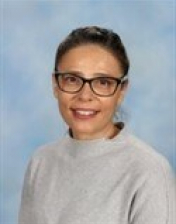Our Mathematics program focuses on the areas of:
- Number and Algebra
- Measurement and Geometry
- Statistics and Probability
At AIA we encourage students to view mathematics as a way of understanding the world around us. We move beyond process driven activities and provide rich, open-ended experiences for students to solve authentic, real-world problems using numbers. Students develop habits that enable them to be risk takers, open-minded and persist through mathematical challenges. Each student is supported at their individual level of need and provided with opportunities to create goals that direct their learning.
Often, teachers are asked by parents what they can do to support their child’s learning at school and how they can inspire their child’s natural curiosity and wonder in mathematics at home. The start of the year seems like an appropriate time to reinforce that it is significant that all students appreciate the beauty and perfection of mathematics along with being proficient with the many techniques and algorithms. I would like to share the following tips for parents:
- Encourage children to play maths puzzles and games. These activities help their child enjoy mathematical thinking which is critically important.
- Reward correct logic when helping children with maths rather than just correct answers. There are many ways to solve a problem, and creativity of thought is the first step to accuracy.
- Speed drills in maths can lead to anxiety, especially in younger students. It is important to work carefully and deeply rather than just speedily.
- Parents should avoid sharing with their child that maths was a struggle at school for them, as this can perpetuate the sense of failure associated with maths.
- Encourage them to develop number sense by combining and separating numbers with flexibility. For example, to add 29 and 56, it is easier to work by adding 1 to 29 making the sum 30 + 55.
- Explore practical use of mathematical concepts in real life situations: for example, use of percentage in price tags, use of decimals in money and use of weight in different products available in the market.
- Last but not the least, encourage a growth mindset. Our children should know that everyone can do maths in primary school. When a student believes in themselves, the brain thinks more efficiently. Struggling with a problem does not mean that you cannot do maths. Rather, mistakes make one’s brain grow and struggle is good for us!
Ms Julie Grima
Mathematics Coordinator

